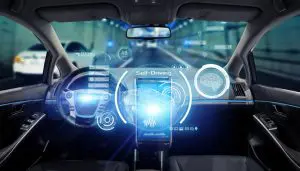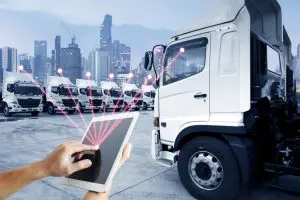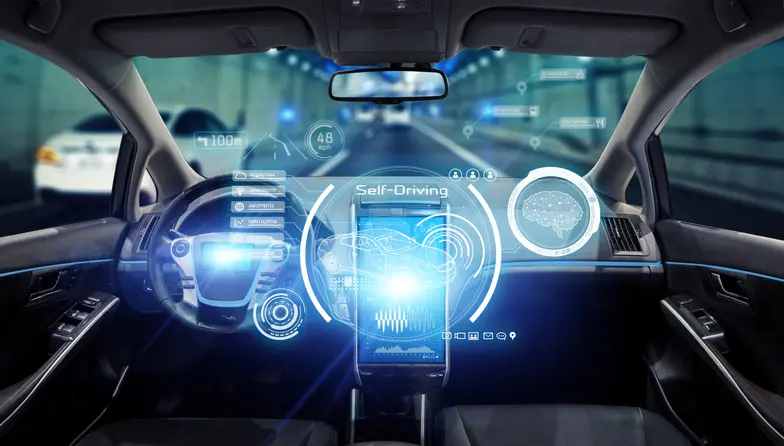
Mobility as a service (MaaS) is the concept of shifting away from personally owned modes of transportation and pushing towards travel provided as a service. For example, instead of driving your car every morning for your daily commute, a completely autonomous vehicle picks you up to deliver you to your predetermined location. All you need to do is log into the MaaS application that has your work schedule and destinations on file. The app knows your entire daily routine, when you need to be picked up, when you need to arrive at work, and when you need to travel back home. Integrating MaaS into our daily lives could drastically change how we travel, manage employee expenses, and handle logistics as a whole.
HOW WILL MAAS CHANGE TRAVEL?
Instead of paying down on your car loan each month, you will be charged a one time trip fee or a reoccurring management fee that covers the maintenance costs of your autonomous vehicle, which you will share with multiple other people who have the same application.
No more leaving your car parked at the office, the vehicles used in these applications will be running errands for other people in the area, increasing the efficiency of vehicle usage overall.
That’s not all, imagine a completely integrated system that manages your entire trip which could include car, bus, train and air travel. Instead of spending time booking plane tickets, ride shares and hotel reservations, you create a trip inside your mobile app that does all the work for you.
One application that delivers you to your destination through multiple channels without you needing to do anything short of pushing a button.
MaaS will combine multiple modes of transport into seamless trip chains across all different states and cities. Users will not need to worry about changing over to other applications they aren’t familiar with when creating a long trip. The application will automatically show travel options based on cost, efficiency, sustainability and time.
The question will no longer be “What does traffic look like today?” instead, it will become “which method of the transportation chain fits me better based on my criteria?”
Mobility as a service will increase the efficiency of car usage, but it will also decrease the amount of car sales for personal use. Most people will not see the need to own their vehicles when they can simply order a vehicle to pick them up consistently every morning and every afternoon.
HOW WILL MAAS IMPROVE PRODUCTIVITY?
With fully automated travel, you no longer need to focus on the road while you ride. Matter of fact, you could start your day the moment you get into the vehicle that picks you up.
While you work on your laptop, a complex algorithm takes all factors into consideration when determining the best route to take. Traffic congestion, estimated time of arrival, and any additional mobility chains involved will be considered simultaneously without you lifting a finger.
This could lead to greater productivity within corporations as well as less stress for employees who no longer need to worry about driving to work, dealing with traffic, or booking hotel and flight accommodations.
Corporations will save hundreds of thousands of dollars each year with integrating MaaS into their employee travel expenses. Think about all the costs attributed to employee travel and the burden of time spent like vehicle rental costs, fuel costs, parking charges, and train ticket fees, these costs will become one monthly charge or a pay per trip scenario.
No longer will managers need to adjust inaccuracies of an employee calculating their own expenses or reporting their own documented travel to a finance executive. Reducing the amount of unmanaged expenditure will increase more accurate financial reports. Allocating more time to perform other tasks.
HOW WILL MAAS AFFECT THE ENVIRONMENT?
Without the need for owner operated vehicles, the carbon emissions will drastically decrease because less cars will be on the roads. Remember that each vehicle involved in MaaS will be shared by multiple companies and/or individuals. Since most of the autonomous vehicle plans are 100% electric, this will also decrease the amount of money spent on fuel as well as decrease the corporations carbon footprint.
HOW CAN MAAS BENEFIT THE FLEET WORLD?

There seems to be a trend in Europe for fleet managers to integrate MaaS within their companies as well. Instead of focusing on allocation of trucks and trailers, fleet managers will focus on the clients needs and pick the best truck or trailer that would be the most cost-efficient choice while completing the requested task of the customer.
Fleet managers who use mobility as a service will switch their focus from Total Cost of Ownership (TCO) to Total Cost of Mobility (TCM) due to the mobility application deleting the need to monitor existing tasks like pick-up, dispatch, driver identification, and proper billing.
If this system is integrated throughout the world, then the need for common fleet management tasks will take a backseat and companies will focus on hiring managers who can think outside the box when it comes to mobility costs. Using innovative techniques like sharing their fleet for a small fee with other neighboring companies to boost vehicle usage and efficiency will become the norm.
MaaS will also force fleet management companies to focus more of their expenses towards mobility allowance rather than car allowance.
WHAT TO LOOK FORWARD TO IN THE FUTURE
With the forecast of mobility as a service being integrated within every aspect of our travel (private and public), and the more technology advances in air travel, companies like Lilium are poised to take advantage of a new market.
If you haven’t heard of “air taxis” yet, then you are in for a treat. New technologies are becoming available that would allow for an individual to fly home instead of waste time in traffic. The only thing stopping companies like Lilium is the need for local governments to incorporate landing pads throughout their cities.
The way the jet works is with multiple engines installed along the wings that can adjust for take off and flight. Allowing these small jets to travel without the need of a long runway. They can travel up to 180 MPH and use a mobile app with GPS to help locate different landing pads throughout the country, and soon, the world.
“We’re putting the customer at the heart of everything we do, from the first moment you open the app, to the moment you arrive at your destination. Our air mobility service will be available in various cities around the world by 2025.”
Take everything we mentioned earlier about MaaS and now incorporate flight inside of that service application. With a prediction of availability by the year 2025, this futuristic technology doesn’t seem far away. We are excited to see what the future holds.
Cutting costs by using mobility as a service will be a great way to improve a fleet management company’s bottom line. Granted this technology is just beginning, but soon we will have all these apps improving our daily lives for the better. If you don’t have time to wait regarding cutting costs, then you should checkout Encore Protection’s commercial roadside assistance plans and see how we can save you money right now with your entire fleet. Call us at 1-844-6ENCORE for a free quote!


Comments are closed